Search
Search Results
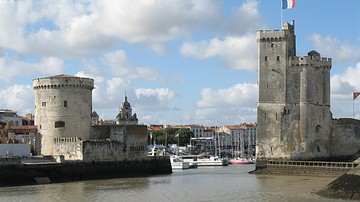
Article
La Rochelle, a Protestant Stronghold of the French Reformation
La Rochelle emerged early in the French Reformation as a Protestant political and military center. The city's fortifications withstood repeated sieges over the years. In 1627, La Rochelle was besieged by Cardinal Richelieu (l. 1585-1642...
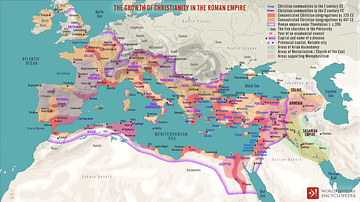
Article
Rome's Response to the Spread of Christianity
During the 1st century CE, a sect of Jews in Jerusalem claimed that their teacher, Jesus of Nazareth, was the 'messiah' of Israel. 'Messiah' meant 'anointed one', or someone chosen by the God of Israel to lead when God would intervene in...

Article
Saint Augustine of Hippo & His Confession of Faith
Few theologians have attained as much renown and influence in history as Saint Augustine of Hippo (354-430 CE), a 'Doctor' of the Catholic Church and simply known by his peers as 'The Knowledgeable One.' A brilliant man who never sought to...
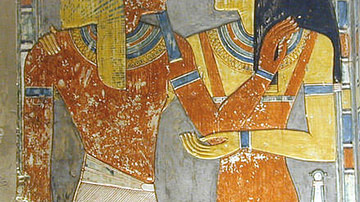
Definition
Horemheb
Horemheb (reigned 1320-1292 BCE) was the last pharaoh of the 18th dynasty of Egypt. He is also known as Dejserkheprure and Horemhab. His name means, “Horus is in Festival” and he came from the lower classes of Egypt, worked himself up through...
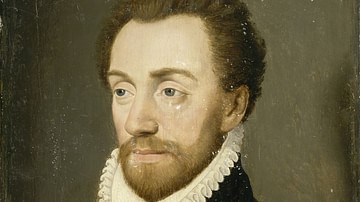
Definition
Louis I de Bourbon, Prince of Condé
Louis I de Bourbon (l. 1530-1569) was a descendant of Louis IX of France (r. 1226-1270) and founder of the House of Condé. The Prince of Condé proved his valor as a Huguenot military leader during the first three French Wars of Religion and...
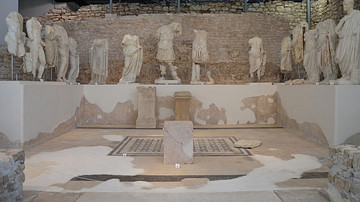
Definition
Roman Imperial Cult
The Roman imperial cult was the practice of venerating Roman emperors and their families as having divine attributes, honoring their contributions to the spread of Roman religion and culture. It was instituted by the first Roman emperor Augustus...

Definition
Petrarch
Petrarch (1304-1374 CE), full name Francesco Petrarca, was an Italian scholar and poet who is credited as one of the founders of the Renaissance movement in art, thought, and literature. Petrarch actively searched for 'lost' ancient manuscripts...
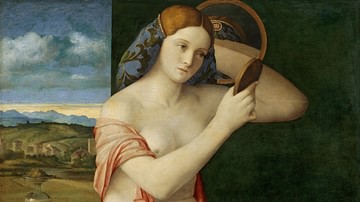
Definition
Giovanni Bellini
Giovanni Bellini (c. 1430-1516 CE) was an Italian Renaissance artist best known for his innovative use of colour, interest in light, and emphasis on brushwork. Today, Giovanni is recognised as the most innovative and influential of the Bellini...
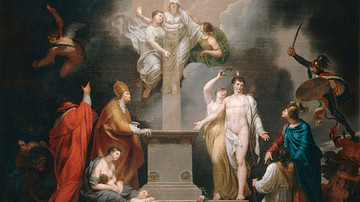
Article
Napoleonic Concordat of 1801 & Religious Pluralism
The Napoleonic Concordat of 1801 defined France's relationship with the Catholic Church for over 100 years. The Organic Articles were added in 1802 and provided state recognition of the Reformed and Lutheran confessions alongside the Catholic...
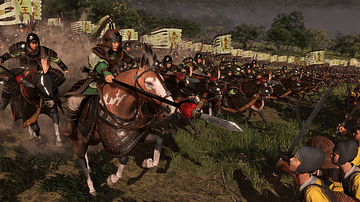
Article
War of the Eight Princes
The War of the Eight Princes (291-306 CE) is the conflict which weakened and finally ended the Western Jin Dynasty (266-316 CE) in China and resulted in more far-reaching consequences throughout the country. The power of the Sima family was...